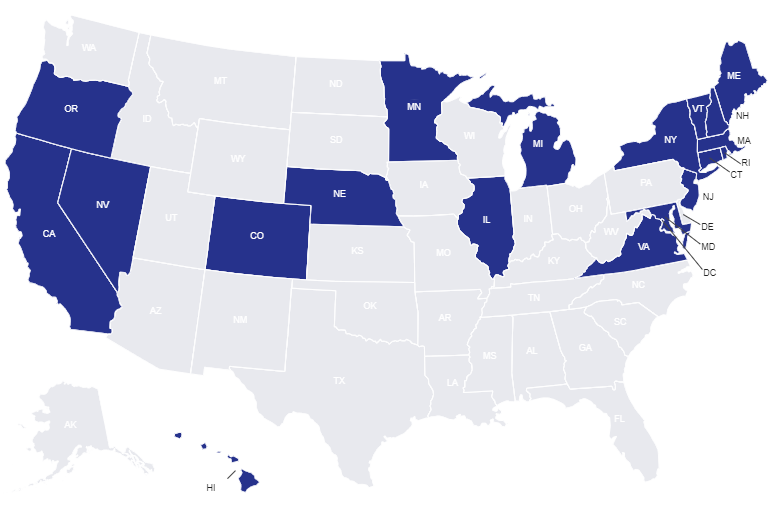HR Newsletter
Posted on September 28, 2022 | Compliance
Trend to Watch: Wage Transparency Laws

Laws addressing wage transparency are rapidly increasing in an effort to help ensure pay equity. Some of the laws attempt to do so by simply prohibiting employers from banning discussions about pay. Others go a step further by requiring employers to provide pay range information to applicants and employees. Here's an overview of both types of laws.
Laws prohibiting wage secrecy policies:
Federal law:
Under Section 7 of the National Labor Relations Act (NLRA), employees have, among other things, the right to act together to improve wages and working conditions and to discuss wages, benefits, and other terms and conditions of employment, with or without a union. The National Labor Relations Board (NLRB), which enforces the NLRA, and many courts have found that pay secrecy or pay confidentiality rules violate Section 7 rights. As such, all employers should avoid employment actions or implementing policies that could be construed to restrict employees' rights under the NLRA. Instead, take steps to better communicate information about your company's compensation program and how employees' salaries and wages are determined.
State and local laws:
Currently, twenty states and the District of Columbia have enacted laws that expressly prohibit employers from banning employees from discussing their wages. The states with these laws include:

Some local jurisdictions have also enacted similar laws. Check your state and local laws for details.
Laws requiring disclosure of pay ranges:
Several states and local jurisdictions require private sector employers to disclose the pay range for a position to an applicant or employee. Here are some examples:
|
State or local jurisdiction |
Covered employers |
Pay disclosure requirements |
|
California |
All |
Effective through 12.31.22:
Effective beginning 1.1.23:
|
|
Colorado |
All |
In each posting for each job opening, an employer must disclose:
|
|
Connecticut |
All |
Employers must:
|
|
Maryland |
All |
Upon request, an employer must provide an applicant with the wage range for the job for which the applicant applied. |
|
Nevada |
All |
Employers must:
|
|
Jersey City, New Jersey |
Employers with five or more employees |
Employers that use any print or digital media circulating within the city to provide notice of employment opportunities must disclose a minimum and maximum salary and/or hourly wage, including benefits, in the posting or advertisement. |
|
New York City (effective 11.1.22) |
Employers with four or more employees |
When advertising a job, promotion, or transfer opportunity, employers must state the minimum and maximum annual salary or hourly wage for the position. |
|
Ithaca, New York |
Employers with four or more employees |
When advertising a job, promotion, or transfer opportunity, employers must state the minimum and maximum annual salary or hourly wage for the position. |
|
Westchester County, New York (effective 11.6.22) |
Employers with four or more employees |
When advertising a job, promotion, or transfer opportunity, employers must state the minimum and maximum annual salary or hourly wage for the position. |
|
Cincinnati, Ohio |
Employers with 15 or more employees |
Upon request, employers must provide the pay scale for a position to an applicant who has received a conditional offer of employment. |
|
Toledo, Ohio |
Employers with 15 or more employees |
Upon request, employers must provide the pay scale for a position to an applicant who has received a conditional offer of employment. |
|
Rhode Island (effective 1.1.23) |
All |
Employers must:
|
|
Washington |
Employers with 15 or more employees |
Effective through 12.31.22:
Effective beginning 1.1.23:
|
Note: In June 2022, the state legislature in New York approved Senate Bill 9427, which would require employers with four or more employers to disclose salary and pay range information to applicants and employees. If signed by the governor, it would take effect 270 days later.
Conclusion:
Employers should ensure compliance with applicable wage transparency laws. Even if your state or city hasn't enacted legislation yet, many jurisdictions are contemplating such laws, so watch for developments closely.



